What exactly does a sports analyst do?
Although the term “sports analyst” was first used by radio and television pundits to evaluate a team’s or player’s performance, data-driven sports analysts are a more recent development. Sports analytics of today use data to analyze performance in a more rigorous manner, going far beyond media criticism alone.
Predictive analytics, machine learning, and data mining are just a few of the technologies used by data-driven sports analysts to dissect performance, pinpoint areas for development, and uncover additional information. They then use this data to influence choices regarding tactics, personnel, and strategy.
Nor is their work exclusively focused on sports. They could advise business strategies in the gambling industry, assist coaches in identifying their own advantages and disadvantages, or even be journalists who use statistics to support their reporting. Few people comprehend how much more is possible.
Who Hires Sports Analysts?
Sports analysts can be employed by professional sports clubs and leagues, academic institutions, bookies, and media sources (such as TV, newspapers, or internet entertainment companies). Because sports analysis is such a specialized field, many sports analysts also work for themselves, providing their expertise as needed.
What is the typical salary of a sports the analyst?
We now know exactly what goes into being a sports analyst—the critical details! What is the maximum amount you can make?
Experience level, geography, and even job title will all affect your pay. Looking at estimates from reliable pay aggregation websites, however, can give us an approximation.
The average pay for a sports analyst in the United States is as follows:
Salary range: $44,000 USD
Glassdoor: $63,000 USD
Yes, $43,000 USD.
The ZipRecruiter: $61,000 USD
Expert Salary: USD $75,000
In contrast: USD $78,000
Although these figures differ, we can infer from their average that the average income for a sports analyst in the United States is approximately $60,000. This is about right, given the specialized talents needed for this position. In an entry-level role, your pay may be lower, but as your abilities become more specialized, it may increase significantly. However, $60,000 isn’t bad at all, particularly for a position you’ll probably be really passionate about!
Here’s a step-by-step tutorial to get you started as a Sports Analyst:
Step 1: Obtain a college degree.
A bachelor’s degree is typically required to land a position as a sports analyst. This should ideally be in a data-related discipline like statistics, computing, or math, or in a sports-related subject like fitness or sports management. You could even pursue a master’s degree to advance this.
Although it’s not legally required, doing this will make you stand out and be useful if you want to go right into a managerial position in sports analytics. However, unless you are truly passionate about it, we wouldn’t advise taking this path.
In the end, a degree isn’t necessarily required for positions as a sports analyst, so don’t worry if you don’t have one. Just remember to review the job description whenever you apply for a position. It can occasionally be enough for an entry-level position if you have a strong background in business and sports and feel comfortable working with statistics.
Step 2: Obtain a certification in data analytics.
Sports knowledge is an obvious requirement if you want to work as a sports analyst. However, you must also be proficient in data analytics. This is where you should think about getting a data analytics certification.
Many data analytics certification programs are available. While they do have a fee, they are usually aimed at helping you land a certain career and are less expensive than a full degree. However, not all are made equal, so do your homework first.
For example, while Coursera and Udemy provide sports performance courses, a more targeted data analytics program may be preferable if you lack a formal certification such as a degree. These typically provide a broader range of data analytics skills. If you’re not sure where to begin, look into the best data analytics certification programs on the market right now.
Step 3: Join professional meetings
Although it’s an excellent place to start, reading blog entries like this one will only get you so far. Participating in sports-related conferences, symposiums, and meetings can help you stay up to date on industry trends and gain a deeper understanding of the subject. It might also be a fantastic opportunity to make connections with companies, independent contractors, and other experts in the sports sector.
The number of conferences devoted to sports analytics is quite small. However, there are a lot of sports tech-related events overall. Why not conduct some reconnaissance while you’re first starting out? It’s fantastic if you locate employment opportunities! However, at this point, it’s crucial to gain a sense of the field as a whole and the areas you might wish to work in.
Do you have any interest in any particular sport? Do you have a greater interest in areas such as performance analytics? Or would you rather work behind the scenes on a project involving, say, business analytics for the gaming industry?
The Sloan Sports Analytics Conference and the Sports Tech Summit are two well-liked occasions to take into account. You can still benefit from the online workshops and presentations even if you are unable to attend in person because many of these events are conducted in part online.
Step 4: Begin to develop your skills.
The sports analytics sector is far more diverse than it might seem from the outside, as we’ve discussed. You consequently have a wide range of possibilities when it comes to employment roles. A few careers you could be interested in are tech journalism, sports data science, marketing analysis, coaching, and sports programming. Gaining an understanding of the sectors you wish to operate in will be somewhat simpler when you have become acquainted with the business and the kinds of chances that are there.
Think about your abilities, passions, and long-term objectives while making your choice. Next, look for volunteer work, internships, or entry-level jobs to advance your career and develop your real-world skills. Keep an eye out for opportunities such as internships and volunteer work, which are frequently offered by sports teams. Opportunities may also be found with broadcasters, bookmakers, newspapers, and other media entities, as well as universities.
The most important thing is to advance your abilities in your area of interest, ideally by assembling projects and supporting documentation for your data analytics portfolio.
Step 5: Optimize your CV and portfolio.
Applying for jobs is a good idea once you have some experience and some talents. Make sure your resume is current and has all of the necessary education, training, and experience.
Make sure your portfolio of data analytics is prepared as well. This ought to cover all of your past projects as well as any credentials you may have in data analytics.
Include one or two sample projects if you don’t yet have any experience, such as capstone projects from courses you’ve completed or a side project you’ve worked on in your own time. This post offers some fantastic project ideas for sports analytics along with tutorials.
These steps should put you in a good position to begin applying for jobs. Wishing you luck!










